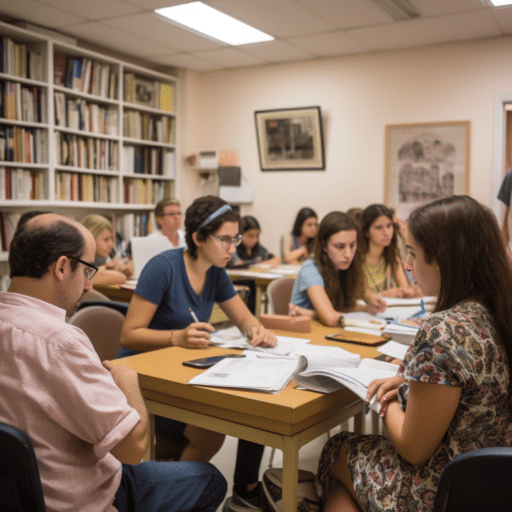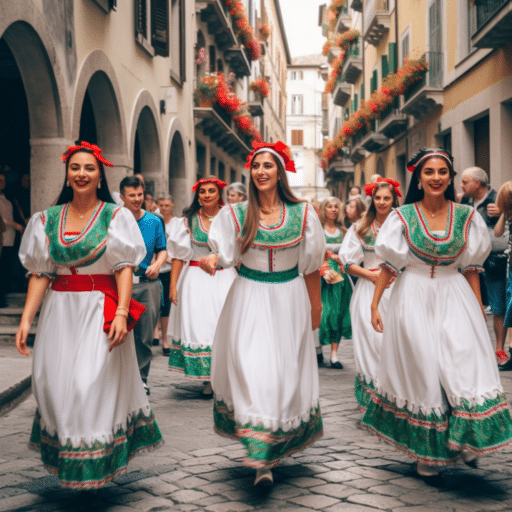The Italian Elective Residency Program stands as a beacon for non-EU nationals seeking to immerse themselves in the Italian way of life. But what does this program entail?
If you want to invest as an expat or high-net-worth individual, you can email me (advice@adamfayed.com) or use these contact options.
What is the Italian Elective Residency Program?
The Italian Elective Residency Program is a unique visa program designed by Italy to attract individuals who wish to live in the country without the obligation of employment.
This initiative was crafted with the intention of drawing high-net-worth individuals capable of sustaining themselves without needing to work in Italy. The allure of this program isn’t just limited to the prospect of living in Italy; it extends to the myriad of benefits it offers.
The Genesis of the Program
Italy, with its rich history, culture, and world-renowned healthcare, has always been a magnet for tourists and expatriates alike.
Recognizing the potential to attract affluent individuals who can contribute to the local economy without taking away job opportunities, Italy introduced the Italian Elective Residency Program. This program is not just about residency; it’s about offering a lifestyle that many dream of but few get to experience.
Key Features of the Program
- No Employment Requirement: One of the standout features of the Italian Elective Residency Program is that it doesn’t bind individuals to any form of employment. This means you can enjoy the Italian lifestyle without the pressure of a job.
- Access to World-Class Healthcare: Italy is known for its top-tier healthcare system. Participants in the program can avail themselves of these facilities, ensuring they have the best care at their fingertips.
- Cultural Immersion: Living in Italy means being surrounded by centuries of history, art, and culture. The program offers individuals a chance to deeply immerse themselves in this rich tapestry of experiences.

Current Trends and Updates
While the core essence of the Italian Elective Residency Program remains consistent, it’s essential to stay updated with any changes or modifications.
As of now, the program continues to gain traction among high-net-worth individuals, and Italy remains committed to ensuring that participants receive the best experience possible.
Eligibility Criteria
Understanding the eligibility criteria is crucial for anyone considering the Italian Elective Residency Program. It sets the foundation for a successful application and ensures that you meet the necessary requirements.
Who Can Apply?
The Italian Elective Residency Program primarily targets non-EU nationals. This broad category means that individuals from a vast array of countries outside the European Union can consider this program.
Age Considerations
Italy does not impose age restrictions for the Italian Elective Residency Program. This inclusivity makes the program appealing to a diverse range of individuals, from retirees seeking a peaceful life in the Italian countryside to younger folks wanting to experience the vibrant culture of Italian cities.
Family Inclusions
One of the standout features of the Italian Elective Residency Program is its family-friendly approach. If you qualify for the program, you can also include your immediate family members in your application. This provision ensures that families can stay together and enjoy the Italian experience as a unit.
Financial Requirements
A cornerstone of the Italian Elective Residency Program is its emphasis on financial stability. The program aims to attract individuals who can sustain themselves without relying on the Italian job market.
Proof of Stable Income
Applicants must demonstrate a consistent and stable income. This income acts as an assurance that you can comfortably support yourself and any dependents during your stay in Italy.
Sources of this income can vary, from pensions and retirement funds for older applicants to savings and passive income streams for younger ones.
Income Thresholds
While the Italian Elective Residency Program requires proof of income, it’s essential to note that there’s a minimum income threshold. This threshold ensures that applicants have enough resources to live comfortably in Italy.
The exact amount can change based on various factors, including the number of dependents and the region in Italy where one intends to reside. Staying updated on these requirements is crucial for a successful application.
Application Process
Understanding the eligibility criteria is crucial, but equally important is familiarizing yourself with the application process for the Italian Elective Residency Program.
Required Documents
The Italian Elective Residency Program demands meticulous documentation to ensure a smooth application process.
Financial Proofs
The Italian Elective Residency Program requires applicants to provide financial statements. These statements validate that you have a stable income, ensuring you can sustain yourself in Italy without seeking employment.
Personal Identification
Essential documents such as your passport, recent photographs, and any other relevant identification are mandatory. These help the Italian authorities verify your identity and process your application efficiently.
Background Verification
Italy prioritizes the safety and security of its residents. As part of the Italian Elective Residency Program, they conduct thorough background checks on applicants. This step ensures that those entering the country have no criminal history or outstanding issues that could pose a risk.
Steps to Apply
Embarking on the Italian Elective Residency Program journey requires careful planning and execution.
Submission Point
The first action you need to take for the Italian Elective Residency Program is to submit your application. The ideal place for this is the nearest Italian consulate or embassy in your home country. They have trained staff who can guide you through the initial stages of the process.

Application Review
Once you submit all the necessary documents, the Italian authorities will review your application. This review ensures that you meet all the criteria for the Italian Elective Residency Program.
Processing Time
The time it takes to process applications for the Italian Elective Residency Program can vary. Factors affecting this include the volume of applications and the time of year. However, it’s essential to remain patient and stay informed about the status of your application.
Benefits of the Italian Elective Residency Program
The Italian Elective Residency Program offers a multitude of advantages beyond just residing in the picturesque landscapes of Italy.
Living in Italy
By participating in the Italian Elective Residency Program, you directly engage with Italy’s profound culture. From its world-renowned art to its delectable cuisine, the experiences are boundless. Italy also takes pride in its comprehensive healthcare system, ensuring that you and your family are always in good hands.
Financial Advantages
The Italian Elective Residency Program is not just about cultural immersion; it also brings forth significant financial perks. Italy has designed tax incentives specifically to lure affluent individuals. Furthermore, Italy’s real estate market is flourishing, offering a myriad of investment opportunities.
Education and Healthcare
The Italian Elective Residency Program ensures that children residing in Italy have access to free public education. On the healthcare front, holders of an elective residence permit can register with the Italian National Health service by paying an annual registration fee.
This registration provides foreigners with the same healthcare benefits as Italian citizens, including choosing a family doctor, accessing specialist tests and visits, and hospital admissions.
Italian Citizenship and Residency
After five years of legal stay in Italy, holders of an elective residence permit can apply for a permanent residence permit. After a decade of legal residency, they may be eligible to apply for Italian citizenship, provided they have registered as residents and filed tax returns.
Work Restrictions and Income Sources
It’s essential to note that the holder of an Italian Elective Residency Visa is prohibited from working in Italy. However, income can be derived from alternative resources such as ownership or equity interest in companies, bank deposits, company income (not as an employee but as an owner), and real estate income.
Driving and Residency Updates
After a year of residency in Italy, foreign driver’s licenses become invalid. Acquiring an Italian driver’s license becomes mandatory after this period. Additionally, applicants must update their residency status in Italy when renewing their Residence Permit.
Extension and Renewal
The Residence Permit can be renewed within Italy before its expiration date. The visa itself doesn’t need renewal as the Residence Permit replaces it.
Potential Challenges and Solutions
The Italian Elective Residency Program, like many immigration programs worldwide, presents its unique set of challenges. However, armed with the right information and a proactive approach, you can navigate these challenges effectively.
Common Hurdles Faced by Applicants
The Italian Elective Residency Program is a sought-after visa program for those wishing to live in Italy without the need for employment. However, applicants often face several challenges:
Financial Concerns
A significant challenge faced by many is proving they have a stable and continuous passive income. The Italian Elective Residency Program requires applicants to demonstrate a minimum passive income of 32,000€ per year.
This income should not be from active work but from sources like pensions, dividends, rents, or long-term investments. The Italian consulates are stringent in their evaluations, and any discrepancies can lead to application denials.
Accommodation Requirements
Another hurdle is the accommodation requirement. Applicants must provide evidence of a place to stay in Italy for long-term permanency.
Hotel bookings, Airbnb, and similar arrangements are not acceptable. A registered lease agreement, in line with Italian legislation, is necessary, making it crucial for applicants to secure accommodation in Italy before applying.
Bureaucratic Procedures
The bureaucratic procedures for the Italian Elective Residency Program can be daunting for many. From gathering the right documents to ensuring they are correctly translated and legalized, the process can be intricate.
Moreover, each Italian consulate may have its specific requirements, adding another layer of complexity.
Tips for a Successful Application
Ensuring a successful application for the Italian Elective Residency Program requires meticulous preparation and a deep understanding of the requirements.

Seek Expert Assistance
One of the most effective ways to boost your chances of success with the Italian Elective Residency Program is to enlist the help of qualified Italian Immigration Lawyers.
They can provide tailored and dedicated assistance, ensuring that your application aligns with the specific requirements of the Italian consulate you’re applying to.
Thorough Documentation
Prepare all necessary documents meticulously. This includes proof of passive income, a registered lease agreement for accommodation in Italy, and private health insurance with coverage of almost €60,000. Remember, each document should be correctly collected, translated, and legalized.
Understand the Consulate’s Jurisdiction
Ensure you’re applying at the right Italian consulate. You must apply at the consulate in the district where you are legally resident. Proving your residency within the consulate’s jurisdiction is crucial, and you may need to provide utility bills, driver’s licenses, or other documents to confirm this.
Prepare for the Interview
The Italian consulate will conduct an interview as part of the application process. Prepare thoroughly for this, understanding the program’s requirements, and be ready to answer questions about your financial situation, reasons for choosing Italy, and long-term plans.
Renewal and Long-Term Considerations
The Italian Elective Residency Program offers more than just a temporary stay in the beautiful landscapes of Italy. It paves the way for long-term commitments and potential permanent residency.
Renewing the Elective Residency Permit
Every permit under the Italian Elective Residency Program comes with an expiration date. As this date approaches, you must prepare for the renewal process. Typically, the Italian Elective Residency Program permit lasts for one year for the initial grant.
However, the subsequent renewals can extend the permit’s validity, often up to two years. To renew your permit under the Italian Elective Residency Program, you must continue to meet the program’s financial requirements.
This means demonstrating a stable income that can support your stay in Italy. Additionally, you should maintain a clean record, with no legal issues during your stay.
The renewal process for the Italian Elective Residency Program involves submitting an application to the local police station (Questura) in your Italian residence area. Ensure you start this process well before your current permit expires to avoid any legal complications.
Transitioning to Permanent Residency or Citizenship
The Italian Elective Residency Program serves as a stepping stone for those looking to make Italy their permanent home. After living in Italy for ten continuous years under the Italian Elective Residency Program, you become eligible to apply for permanent residency.
This status removes the need for regular renewals and offers more stability. If you’ve nurtured the dream of becoming an Italian citizen, the Italian Elective Residency Program can be a pathway.
After living in Italy for a specific period (typically ten years for non-EU citizens), you can apply for citizenship. This process requires a deeper integration into Italian society, including a language proficiency test.
Achieving permanent residency or citizenship in Italy opens up a world of benefits. You gain unrestricted access to the job market, the right to vote in local elections, and the freedom to move within the EU.

Conclusion and Final Thoughts
The Italian Elective Residency Program stands as a beacon for those seeking a life filled with the richness of Italian culture, the stability of its economy, and the warmth of its people. As we reflect on the program’s offerings, it’s evident that the allure goes beyond just living in Italy.
Recent data suggests that the demand for the Italian Elective Residency Program has surged since 2019. However, with this rising interest comes challenges. Over 2,500 applications face rejection every month, and a staggering 93% of applications are submitted either incompletely or incorrectly.
This highlights the importance of thorough research and preparation when considering the Italian Elective Residency Program. The Italian Elective Residency Program doesn’t just offer residency; it provides a plethora of other advantages.
For instance, there’s no capital investment required. While you need a domicile in Italy, you have the flexibility to either rent a property for 12 months or purchase a home with no minimum value.
Moreover, the program offers a clear path to Italian citizenship after five years of living as an elective resident. For non-EEA nationals seeking a backup plan in the EU, the Italian Elective Residency Program offers a straightforward route.
With adequate passive income and meeting the program’s requirements, you can secure a better future for yourself and your family in Italy. To successfully navigate the Italian Elective Residency Program, it’s crucial to understand its requirements.
A stable passive income, an Italian domicile, comprehensive EU health insurance, and adhering to the minimum stay requirements are essential. With these in place, the Italian Elective Residency Program can be your gateway to a fulfilling life in one of the world’s most sought-after destinations.
Pained by financial indecision?

Adam is an internationally recognised author on financial matters with over 830million answer views on Quora, a widely sold book on Amazon, and a contributor on Forbes.



